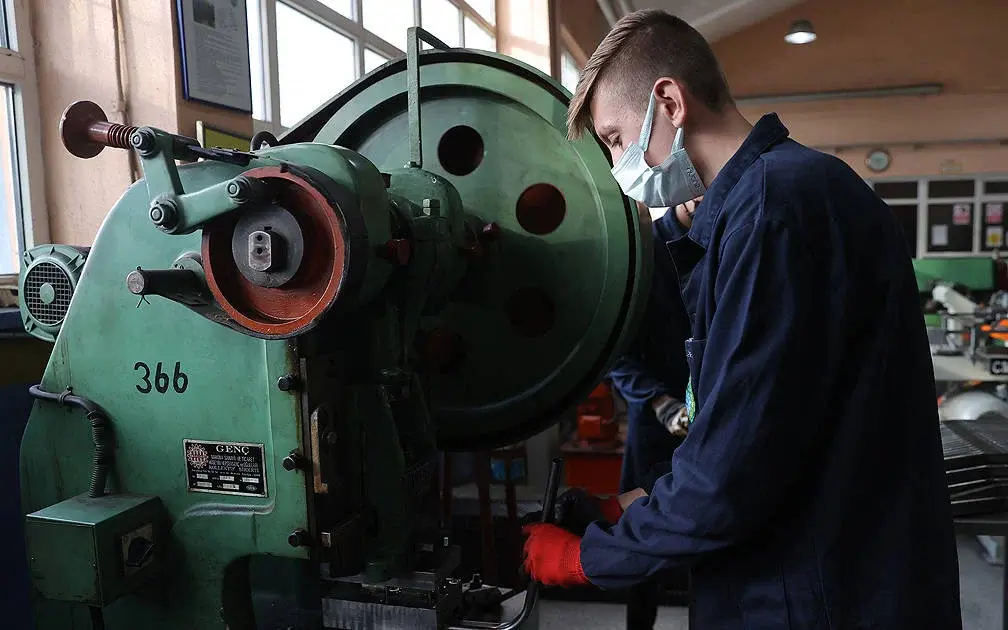The Minister of National Education, Yusuf Tekin, has replied five parliamentary questions on workplace accidents that have taken place in the last two months at Vocational Training Centres (MESEM).
Although the parliamentary questions were different, Tekin chose to give copy-and-paste answers to CHP members of parliament Nermin Yıldırım Kara, Gülcan Kış and Gökhan Günaydın, DEM member of parliament Meral Danış Beştaş and Felicity Party member of parliament Mesut Doğan.
Meral Danış Beştaş had asked how many workplace accidents had taken place since 2016 when the MESEMs were founded, the number of incidents involving deaths and injuries, work lines where the highest number of accidents happened, whether the workplaces were inspected, and whether investigations had been launched and punitive measures had been taken. She also asked the Minister to assess the MESEMs in the context of children’s rights.
Nermin Yıldırım Kara, in a similar manner to Danış Beştaş, asked the number of incidents involving deaths and injuries. Her parliamentary question differed from Danış Beştaş’s in that she also asked whether any students had become disabled as a result of workplace accidents, whether any neglect had been detected at relevant workplaces regarding children who lost their lives, the frequency of inspections at MESEMs, and which work safety measures the ministry implemented to prevent accidents at the workplace.
Gülcan Kış’s parliamentary question differed from both Danış Beştaş and Yıldırım Kara. Kış focused on the work conditions at the MESEMs.
Kış asked whether the Ministry had a program or strategy implemented to prevent children facing workplace accidents, whether the children received workplace health and safety training and whether the children who suffered workplace accidents knew their rights. She also asked Tekin what the ministry’s view was regarding child labour.
Gökhan Günaydın chose to focus on vocational secondary schools opened in Bursa, Sivas, Burdur and Konya, where the age for child labour was even lower. Günaydın stated that there were child workers as young as 10-11 there, and asked Tekin about the pedagogical aspect of this.
Günaydın also asked about the number of child workers in Turkey and the number of workplace accidents involving children that had taken place at MESEMs.
Mesut Doğan, too, like the other members of parliament, asked how many children were involved in workplace accidents at MESEMs in the last year, in which provinces and sectors the accidents had taken place and the related legal processes. He added a question about any support that had been given to the families of the children who had lost their lives in workplace accidents at MESEMs.
Ministry has no authority to fine businesses
Minister Yusuf Tekin gave official responses to the parliamentary questions at separate dates. However, the responses were either the same or similar.
In all responses, he stated that the roots of MESEMs go back to the culture of the Ahi Brotherhood, and that the first legislative regulation regarding the training of apprentices after the founding of the Republic was introduced in 1977.
He added that since then, vocational training centers had provided a type of vocational and technical education program. He further stated that within that scope, apprentice training had been, in 2016, included under obligatory organized secondary education.
Minister Tekin argued that vocational training programs for children existed in various countries and that such programs had a positive impact on their development. He also stated that the program complied with national legislation and international conventions.
Minister Tekin provided only a single response to data requested in different ways in all parliamentary questions, stating that a total of 31 accidents had taken place from 2023 to November 2024, with 26 light injuries and 5 deaths.
The Minister indicated that there were 187 thousand students enrolled at MESEMs, and that following a circular published in February 2024, 144 thousand business facilities had been ‘visited’ and that 25 thousand facilities had been excluded from the program for failing to meet the necessary conditions. He added that they did not have the authority to fine the businesses, passing the responsibility on this matter to the Ministry of Labour and Social Security.
However, Tekin did not respond to questions about accidents that had taken place since 2016 when the MESEMs were founded, students who have become disabled, support for families of the children who lost their lives, lines of business where the most accidents have taken place, inspection of work places, training children receive on workplace health and safety, whether children know their legal rights, precautions taken by the Ministry to prevent accidents and the Ministry’s strategy to that effect and the pedagogical outcomes of child labour.
(HA/NHRD)






